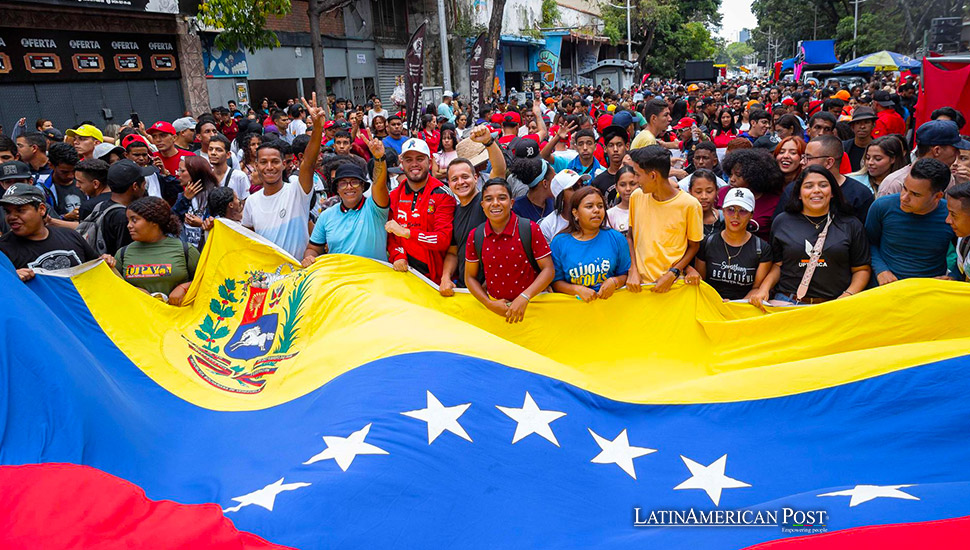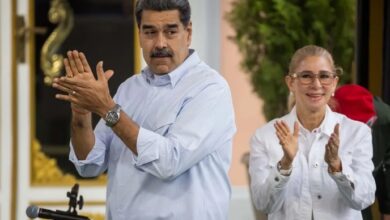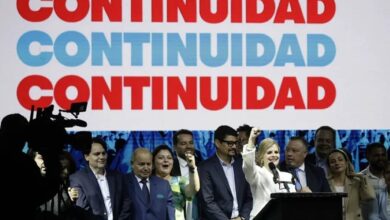Venezuela’s 25-Year Crisis Explained from Prosperity to Turmoil

Venezuela’s political and economic crisis has led to the displacement of millions. This article explores the crisis’s root causes and current state, highlighting the roles of key figures and events.
Due to its vast oil reserves, Venezuela, once one of the wealthiest countries in South America, is now mired in a severe political and economic crisis. Since 2015, over 7.7 million Venezuelans have fled the country, escaping economic hardship and political repression. How did this oil-rich nation reach such a troubled state?
The crisis can be traced back to 1999 when Hugo Chávez was elected president. Chávez, and later his successor, Nicolás Maduro, have led the country under the socialist PSUV party, which has gradually taken control of key institutions, including the judiciary, the electoral council, and the Supreme Court. This consolidation of power has significantly weakened the system of checks and balances, making the role of the president more powerful than ever.
Economic Collapse and Social Unrest
Nicolás Maduro took office following Chávez’s death in 2013. Global oil prices plummeted not long after, plunging Venezuela into a seven-year recession. The country relies almost entirely on oil revenue, so the price drop had devastating effects. Inflation skyrocketed, and shortages of essential goods became widespread, leading to waves of anti-government protests in 2014 and 2017. These protests were harshly suppressed by the police, further fueling discontent among the population. The economic collapse, a tragic consequence of the oil price drop, forced millions of Venezuelans to leave the country, braving dangerous journeys in search of better lives.
The economic collapse, a testament to the resilience of the Venezuelan people, forced millions to leave the country. Many braved dangerous journeys, such as crossing the perilous Darién Gap between Colombia and Panama, in search of better lives. Amidst this chaos, Maduro was re-elected in 2018 in an election widely regarded as neither free nor fair. The executive and judiciary remained firmly under PSUV control, leaving the opposition with little influence.
Opposition and International Response
In January 2019, Venezuela’s divided opposition united behind the National Assembly, the last major institution where they held significant influence. Led by its speaker, Juan Guaidó, the opposition declared Maduro’s re-election invalid and proclaimed Guaidó as the “interim president.” This move was backed by over 50 countries, including the United States and the United Kingdom. However, Venezuela’s military remained loyal to Maduro, bolstered by the continued support of China and Russia, keeping him in power.
The U.S. imposed stricter sanctions on Venezuela, complicating the Maduro government’s ability to sell oil and access foreign currency. In response to the economic freefall, Maduro relaxed some of the stringent foreign currency regulations established by Chávez, which led to a slight economic recovery starting in 2021. However, extreme poverty persists, and those without access to foreign currency continue to suffer.
A Glimmer of Hope?
The opposition’s attempt to overthrow Maduro through Guaidó ultimately failed, leading to disillusionment and a loss of support for Guaidó’s interim government. By December 2022, most opposition parties had withdrawn their backing, and the interim government was dissolved. The opposition then organized a primary in October 2023 to select a unity candidate for the upcoming presidential election.
Former lawmaker María Corina Machado won the primary by a landslide. However, the comptroller-general, a Maduro ally, barred her from holding public office. After her appeal was rejected, she endorsed ex-diplomat Edmundo González as the unity candidate to challenge Maduro in the presidential election on July 28.
The upcoming election is not just a political event, but a critical turning point for Venezuela’s future. The opposition hopes that González’s support will be strong enough to win the election and deter Maduro’s allies’ attempts to overturn a potential victory. This election could either pave the way for a new political era or further entrench the current regime’s power, underscoring its significance.
The Road Ahead
Venezuela’s crisis is far from over. The country remains deeply divided, with a significant portion of the population suffering from extreme poverty and lack of necessities. The political landscape is volatile, and the upcoming presidential election will be a crucial test for the opposition and the international community’s efforts to restore democracy in Venezuela.
The international community plays a vital role in shaping Venezuela’s future. Sanctions, diplomatic pressure, and support for democratic institutions are essential tools in the fight against authoritarianism. However, the support must be strategic and foster long-term stability rather than short-term gains.
Also read:Venezuelan Opposition Likely Secured Overwhelming 80% of the Vote
Venezuela’s journey from an oil-rich nation to a country in crisis is a stark reminder of the importance of solid democratic institutions and economic diversification. The current situation results from years of political mismanagement and financial dependency on a single resource. The upcoming election offers a glimmer of hope for change. Still, achieving a democratic transition and rebuilding the nation will require concerted efforts from the Venezuelan people and the international community.




